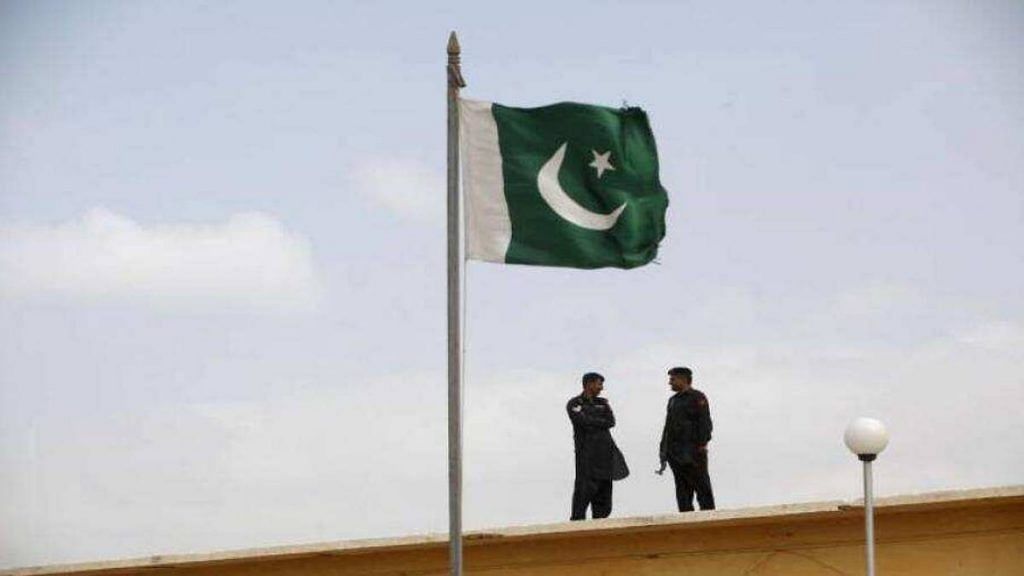New Delhi: The father of the head of Pakistan’s powerful military public-relations organisation is a nuclear scientist sanctioned by the United Nations for providing the Taliban and al-Qaeda “with information about chemical, biological and nuclear weapons”, government sources have told ThePrint.
Sultan Bashiruddin Mahmood, father to Major General Ahmed Sharif, is also known for his eccentric views on science, among other things, proposing djinns could be used to generate electricity.
Sharif was appointed to lead the Inter-Services Public Relations last month by Pakistan’s new army chief, General Asim Munir.
Sharif replaced Lieutenant General Babar Iftikhar, who was accused by former Pakistani Prime Minister Imran Khan of interfering in politics.
The UN says Bashiruddin had met with slain al-Qaeda chief Osama bin Laden and “provided information about the infrastructure needed for a nuclear weapons programme and the effects of nuclear weapons”. The scientist was also alleged to have raised funds for a fundamentalist group, the Ummah Tameer-e-Nau.
Also read: Pakistanis confident the world won’t let a nuclear state collapse. They forget Soviet Union
The scientist’s son
Educated at universities in Germany and the United Kingdom, Bashiruddin was honoured with Pakistan’s third-highest civilian honour, Sitara-e-Imtiaz, by former prime minister Nawaz Sharif. Later, however, Bashiruddin became a trenchant critic of the politician, and supportive of jihadists in Afghanistan.
As a young major-rank officer, one Islamabad-based source familiar with the military said, Sharif was briefly questioned by the Inter-Services Intelligence (ISI) Directorate about possible links to his father’s pro-jihadist activities. The investigation, however, cleared Sharif of suspicion, the source said. It remains unclear whether he was aware of his father’s fundraising activities for the Taliban regime.
ISI officials are also believed to have questioned Asim Mehmood, a doctor and Sharif’s brother.
Few details are available on Sharif’s career, but he is believed to have earlier served as director general of the Defence Science and Technology Organization (DESTO) — a secretive research institution charged with the development of advanced military systems. The DESTO had been subjected to US technology sanctions after Pakistan’s nuclear weapons tests, but these were lifted after 9/11 in an effort to deepen ties with Islamabad.
An officer of the Corps of Electrical and Mechanical Engineering, Sharif has also served in the military operations directorate.
Little is known on Sharif’s personal ideological inclinations. “This is a generation which was born and grew up under the dictator General Muhammad Zia-ul-Haq,” notes scholar and ThePrint columnist Ayesha Siddiqa. “They were inculcated with ultra-nationalist ideas.”
Prophet of doomsday
Following his retirement from the Pakistan Atomic Energy Commission, Bashiruddin wrote a number of apocalypse-themed books, seeking to merge religious scripture with science. In one such treatise, Mechanics of the Doomsday and Life after Death, he held out a warning to mankind that the Last Hour is not very far off. “A few hundred years, this way or that, is of little significance. The end is imminent,” he wrote.
The book also reiterated Bashiruddin’s unconventional views on physics. Energy, he wrote in the book, included “the djinns, created out of fire, (the plasma of hot gases)”. “Angels constitute another type of energy, which is finer and more subtle than fire,” he said.
Even while Bashiruddin was working at Pakistan Atomic Energy Commission, journalist David Sanger has reported, his colleagues were “half-amused and half-horrified by his fascination with the role sunspots played in triggering the French and Russian Revolutions, World War II and assorted anticolonial uprisings”.
“He knew what he was doing,” one US intelligence officer told Sanger. “And he was completely out of his mind.”
Terrorism financier
Together with Chaudhry Abdul Majeed, a former senior scientist at the Pakistan Atomic Energy Commission, Bashiruddin co-founded in 2000 the Ummah Tameer-e-Nau (UTN), a volunteer organisation which raised funds for charitable causes in Taliban-ruled Afghanistan.
The UTN’s membership included retired lieutenant general Hamid Gul, a former director-general of the ISI, together with the nuclear chemist Mirza Yousaf Baig and retired admiral Humayun Niaz.
Among other things, the UTN posted fliers seeking volunteers to serve as doctors in Afghanistan. The pamphlets listed the number of Asim Mehmood as a contact. The organisation also built schools and a flour mill in Kandahar.
Following his arrest in 2001, Bashiruddin had admitted to meeting with Osama bin Laden, but insisted that he only discussed raising funds for a technical college in Afghanistan. The ISI concluded that Bashiruddin did not possess the technical knowledge to pass on nuclear weapons secrets to al-Qaeda, leading to the scientist’s release.
(Edited by Nida Fatima Siddiqui)
Also read: ‘Most responsible nuclear State’—Shehbaz Sharif, Imran Khan, Bilawal refute Biden’s Pakistan comment
